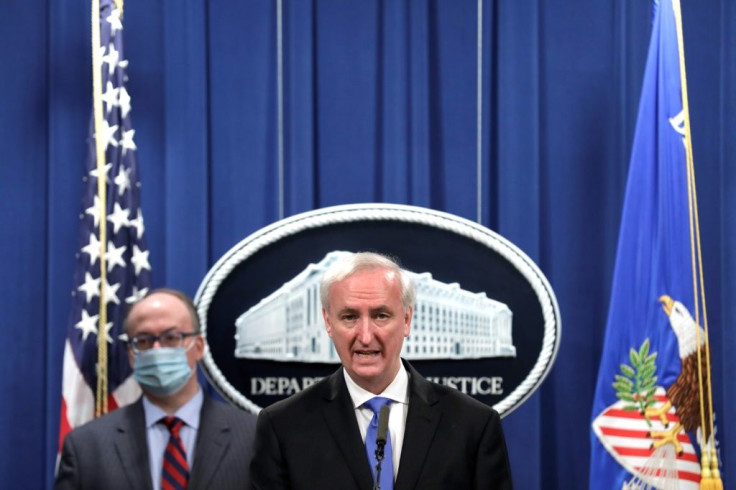Purdue Pharma Pleads Guilty To Criminal Charges Over Opioid Sales
US drugmaker Purdue Pharma pleaded guilty to three criminal charges over its intense drive to push sales of the prescription opioid OxyContin, which stoked a nationwide addiction crisis, the Justice Department announced Wednesday.
Purdue also agreed to $8.3 billion in fines, damages and forfeitures to settle the criminal case against it, the department said.
In a separate agreement, the billionaire Sackler family, which built Purdue to a pharmaceutical giant on the back of lucrative sales of OxyContin, agreed to pay $225 million to resolve civil liability charges filed by the Justice Department.
"Purdue, through greed and violation of the law, prioritized money over the health and well-being of patients," said FBI assistant director Steven D'Antuono.
Purdue, which filed for bankruptcy protection last year, pleaded guilty to one count of fraud and two counts of violating kickback laws over its marketing and sales of OxyContin and two other hydrocodone-based treatments, which involved encouraging distributors and doctors to aggressively push the highly addictive drugs to consumers.

Even after paying $600 million for falsely marketing the painkiller as "less addictive," the Justice Department said, Purdue ratched up its sales drive and developed new addictive applications which it marketed through a network of 100,000 prescribing doctors and nurse practitioners.
Among them were thousands of hyper-prescribers that Purdue "knew or should have known were prescribing opioids for uses many of which were not for a medically accepted indication, were unsafe, ineffective, and medically unnecessary," or which were resold on the black market, the charges said.
To encourage them Purdue had a program dubbed "Evolve to Excellence" which offered financial and other incentives, particularly offering doctors lucrative speaking gigs, which amounted to kickbacks for pumping out more prescriptions of the company's drugs.
Its activities, combined with those of other prescription opioid producers and distributors, fed an epidemic of addiction. Millions of Americans became dependent on the painkillers while the drugmakers reaped billions of dollars in profits.
According to the Centers for Disease Control and Prevention, more than 500,000 Americans have died of opioid overdoses -- both prescription and non-prescription -- since 1999.
In a statement, Steven Miller, Purdue's chairman since 2018, said the company "deeply regrets and accepts responsibility for the misconduct detailed by the Department of Justice."

"Purdue today is a very different company. We have made significant changes to our leadership, operations, governance, and oversight," he added.
Purdue also faces billions of dollars in claims from state and local authorities around the country, and in September 2019 filed for bankruptcy to fend off more legal claims against it.
Because of the bankruptcy and competing claims from litigants and creditors, the Justice Department admitted it might not see all of the $8.3 billion the company agreed to pay on Wednesday.
But the agreement mandated that the company be dissolved and its assets be placed in a new "public benefit company."
"The PBC would be charged with providing its medicines in a manner as safe as possible, without diversions, while providing millions of doses of medicines to treat opioids addiction and reverse overdoses and otherwise taking into account long-term public health interests," said Deputy Attorney General Jeffrey Rosen.
The Sacklers, he added, would have no role in that company. He added that the civil fine against the family did not preclude future criminal charges against them, amid public pressure to wrest back the profits they earned on the addiction epidemic.
In a statement, New York state Attorney General Letitia James said her office will continue to pursue the family.
"Today's deal doesn't account for the hundreds of thousands of deaths or millions of addictions caused by Purdue Pharma and the Sackler family," James said in a statement.
"While no amount of money can ever compensate the pain that so many now know, we will continue to litigate our case through the courts to secure every cent we can to limit future opioid addictions," she said.
pmh/dw
© Copyright AFP 2024. All rights reserved.





















